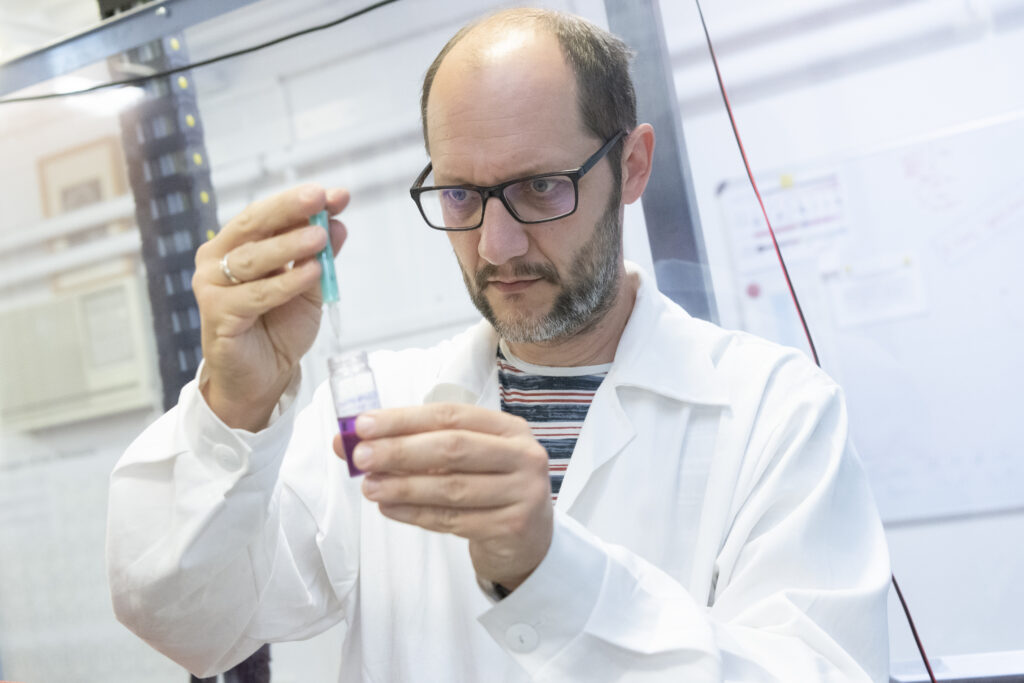
LynXes Innovation Ltd., a Hungarian start-up company developing X-ray spectroscopy based on scientific results achieved at the HUN-REN Wigner Research Centre for Physics, has won a grant in the prestigious European Innovation Council (EIC) Accelerator call this autumn, for which a similar Hungarian applicant last succeeded three years ago. The tool they have developed makes material testing measurements widely available, simple and cheap (which until now could only be carried out at international large-scale facilities and at high cost).
The Momentum – Lendület Research Group for Femtosecond Spectroscopy and X-ray Spectroscopy, led by György Vankó, began its research in the 2010s with the help of an ERC grant. Building upon the results of these studies, the startup has developed the aforementioned laboratory tool, which has the potential to revolutionise material analysis research. This development enables high-energy-resolution X-ray spectroscopy analyses on a laboratory scale, accessible to both academic and industrial users, which were previously achievable almost exclusively at large international research infrastructures, consuming significant amounts of resources, typically daily expenses of tens of thousands of euros. These analyses were previously limited in accessibility for many laboratories, thus the new development opens up vast possibilities, making previously underutilised X-ray spectroscopy techniques widely accessible.
Due to these advancements, the measurement solutions offer intricate, element-specific insights into the electronic structure and interatomic connections in emerging materials. These capabilities find applications across various domains, including the energy sector, sustainable chemistry, waste management, the field dedicated to IT material development, the biotechnology sector, and beyond.
To enable technology transfer, once the necessary legal protection for the results is in place, LynXes Innovation Ltd., established by Wigner researchers Zoltán Németh and György Vankó, takes charge of developing the final product and introducing it to the market. LynXes Innovation Ltd. has spent two years preparing for the European Innovation Council grant, and after months of rigorous competition, it secured the grant this autumn. The significance of this achievement is highlighted by the fact that the likelihood of winning was approximately 6 percent.
The startup continues to collaborate closely with the researchers at HUN-REN Wigner RCP, as the goal is not only to bring the development to market but also to achieve new scientific results through the use of the device.

